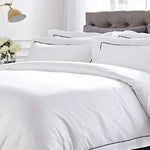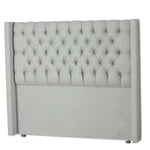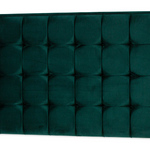Alcohol is a widely consumed substance, often associated with relaxation and unwinding after a long day. However, while it may seem to help you fall asleep faster, its effects on sleep quality and overall health are far from beneficial. In this blog, we’ll explore the relationship between alcohol and sleep, providing insights into why it’s better to reconsider that nightcap.
The Initial Effects of Alcohol on Sleep
1. Faster Sleep Onset Alcohol is a sedative, which means it can make you feel drowsy and help you fall asleep more quickly. This initial effect may lead people to believe that alcohol is a sleep aid. However, this is where the benefits end.
2. Increased Sleep Fragmentation While alcohol may induce sleep, it disrupts the sleep cycle later in the night. As your body metabolizes the alcohol, it interferes with restorative sleep stages, particularly Rapid Eye Movement (REM) sleep. REM sleep is essential for cognitive function, memory consolidation, and emotional regulation.
How Alcohol Disrupts Sleep Patterns
1. Reduced REM Sleep Alcohol consumption suppresses REM sleep, the stage where dreaming occurs. A lack of REM sleep can lead to feeling groggy and less refreshed the next day.
2. Increased Nighttime Wakefulness As the sedative effects wear off, alcohol can cause awakenings during the night. These disruptions fragment your sleep, leading to poor sleep quality.
3. Dehydration and Frequent Bathroom Trips Alcohol is a diuretic, which means it increases urine production. This can lead to more frequent trips to the bathroom, further interrupting sleep.
4. Snoring and Sleep Apnea Alcohol relaxes the muscles in your throat, increasing the likelihood of snoring or exacerbating sleep apnea. This can result in disturbed sleep for both you and your partner.
Long-Term Effects of Alcohol on Sleep Health
Chronic alcohol use can lead to long-term sleep issues, including:
-
Insomnia: Regular alcohol use disrupts your natural sleep-wake cycle, making it harder to fall and stay asleep without alcohol.
-
Circadian Rhythm Disruption: Alcohol can alter your body’s internal clock, leading to irregular sleep patterns.
-
Dependence: Relying on alcohol to fall asleep can create a cycle of dependency, further worsening sleep quality over time.
Tips for Better Sleep Without Alcohol
1. Create a Sleep-Friendly Environment
-
Keep your bedroom cool, dark, and quiet.
-
Invest in a comfortable mattress and pillows for optimal support.
2. Establish a Relaxing Bedtime Routine
-
Swap alcohol for a soothing herbal tea or warm milk.
-
Try relaxation techniques like deep breathing or meditation.
3. Limit Stimulants
-
Avoid caffeine and nicotine close to bedtime.
-
Opt for light meals in the evening to aid digestion.
4. Maintain Consistent Sleep Schedule
-
Go to bed and wake up at the same time every day, even on weekends.
Final Thoughts
While alcohol may offer a quick way to unwind, its impact on your sleep quality and health is far from ideal. By understanding how alcohol affects sleep, you can make more informed choices that prioritize restorative rest. Remember, good sleep hygiene is the foundation of overall well-being.
At The Sleep Shop, we’re dedicated to helping you achieve the best sleep possible. Visit our showroom in Athlone or browse online at www.thesleepshop.ie for premium bedding solutions tailored to your needs.
Address: Ankers Bower, Dublin Road, Athlone, Co. Westmeath N37 E762
Sleep well, live better — with The Sleep Shop.








